1. Logical and Semantic
1.1. Think in shades of GRAY
1.1.1. Dont evaluate yourself as Winner/Looser
1.2. Process v/s Outcome
1.2.1. Evaluate yourself based on Process/effort
1.2.2. Don't evaluate yourself on the outcome
1.2.3. We control our effort - Not the outcome
1.2.4. Gita
1.2.4.1. "Karmanye wadhikaraste maa faleshu kadachana"
1.3. Semantic MEthod
1.3.1. Substitute kindler gentler language for emotionally colorful words
1.3.2. Don't should all over yourself
1.3.2.1. Only 3 valid uses of SHOULD in english language
1.3.2.1.1. MORAL
1.3.2.1.2. LEGAL
1.3.2.1.3. UNIVERSAL LAWS
1.3.3. Stop being ABSOLUTE about things
1.4. Get specific
1.4.1. Dont use vague generalizations
1.4.1.1. I am a failure
1.4.1.2. I always fail at this
2. Quantitative
2.1. Self Monitoring
2.1.1. Count your -ve thoughts daily
2.1.1.1. on a wrist counter
2.1.2. The act of counting will bring them down
2.2. Worry Breaks
2.2.1. Schedule time to feel anxious/depressed etc
2.2.1.1. Dont fight the feelings
2.2.1.2. GO all out
2.2.2. Paradoxically they allow you to feel relaxed at other times
3. Exposure
3.1. Gradual
3.1.1. Step by Step
3.1.1.1. One small step at a time
3.2. Flooding
3.2.1. Expose yourself to it all at once
3.3. Distraction
3.3.1. For example
3.3.1.1. In an MRI machine
3.3.1.1.1. Distract yourself with - counting your breaths
3.3.1.1.2. Meditation
3.3.1.1.3. Counting down
4. Anti-Shyness
4.1. Smile and Hello
4.1.1. Smile and say hello to 10 strangers every day
4.2. Flirting
4.3. Rejection Practice
4.3.1. Try to accumulate as many rejections as possible
4.3.2. Instead of trying to get a date, make it a goal to get rejected 10 times a week
4.3.3. It is paradoxical and very liberating
4.4. Self-Disclosure
4.4.1. Dont hide your feelings.
4.4.1.1. Disclose your feelings openly
4.4.2. The real problem is not the SHYNESS
4.4.2.1. But the SHAME you feel
4.4.3. Without the Shame, the shyness can be endearing
4.4.3.1. Vulnerable and charming
4.4.4. PARADOX
4.4.4.1. Acknowledging your feelings makes them disappear
4.4.4.2. Fighting your feelings makes them persist inside of you
5. Anti-Procrastination Techniques
5.1. Pleasure Predicting
5.1.1. Schedule activities
5.1.2. Predict how satisfying and rewarding each activity will be from 0% to 100%
5.1.3. After completing, record how satisfying/rewarding it really was
5.1.4. Notice the difference in prediction and reality
5.2. Little Steps
5.2.1. Break big tasks into small peices
5.2.2. Start on the smallest tasks
6. Acceptance Paradox
6.1. Probably the MOST powerful Technique in the book
6.2. When you resist - It persists
6.3. When you accept - it flows through you and doesn't persist inside of you
6.3.1. The critics stop because there is nothing to fight against
6.4. Once you accept that
6.4.1. You are defective
6.4.2. You won't always be happy
6.4.3. That you will struggle
6.4.4. You get a sense of calm and joy
6.4.4.1. At a META level
6.4.4.2. You can abstract yourself from the mundane
7. Daily Mood Log
7.1. Make a Table
7.1.1. Event
7.1.1.1. Emotions
7.1.1.1.1. ANTs
8. Your Self Defeating Beliefs
8.1. Vertical Arrow Technique
9. Modifying a self defeating belief
9.1. 1. Cost Benefit Analysis
9.2. 2. Revise the Belief
9.3. 3. Put the Belief to the Test
10. Worst possible outcome/What If
10.1. Helps you uncover a terrifying fantasy that triggers this anxiety
10.2. Whats the worst that could happen if this was true
10.2.1. Keep asking this to the answer you get
10.3. How likely is it to happen?
10.4. Can I live with it if it did happen
11. Compassion
11.1. How would I talk to a dear friend who had a similar problem?
11.2. Role Play
11.2.1. The other person tells you about their problem exactly as if it was happening to them
11.2.2. You respond and try to figure out a solution
12. Truth Based
12.1. Examine the Evidence
12.1.1. Analyze the data available to you
12.1.2. What's the evidence for this claim
12.2. Experimental Technique
12.2.1. How can I test this?
12.3. Survey Based
12.3.1. Ask your friends/specific people about it
